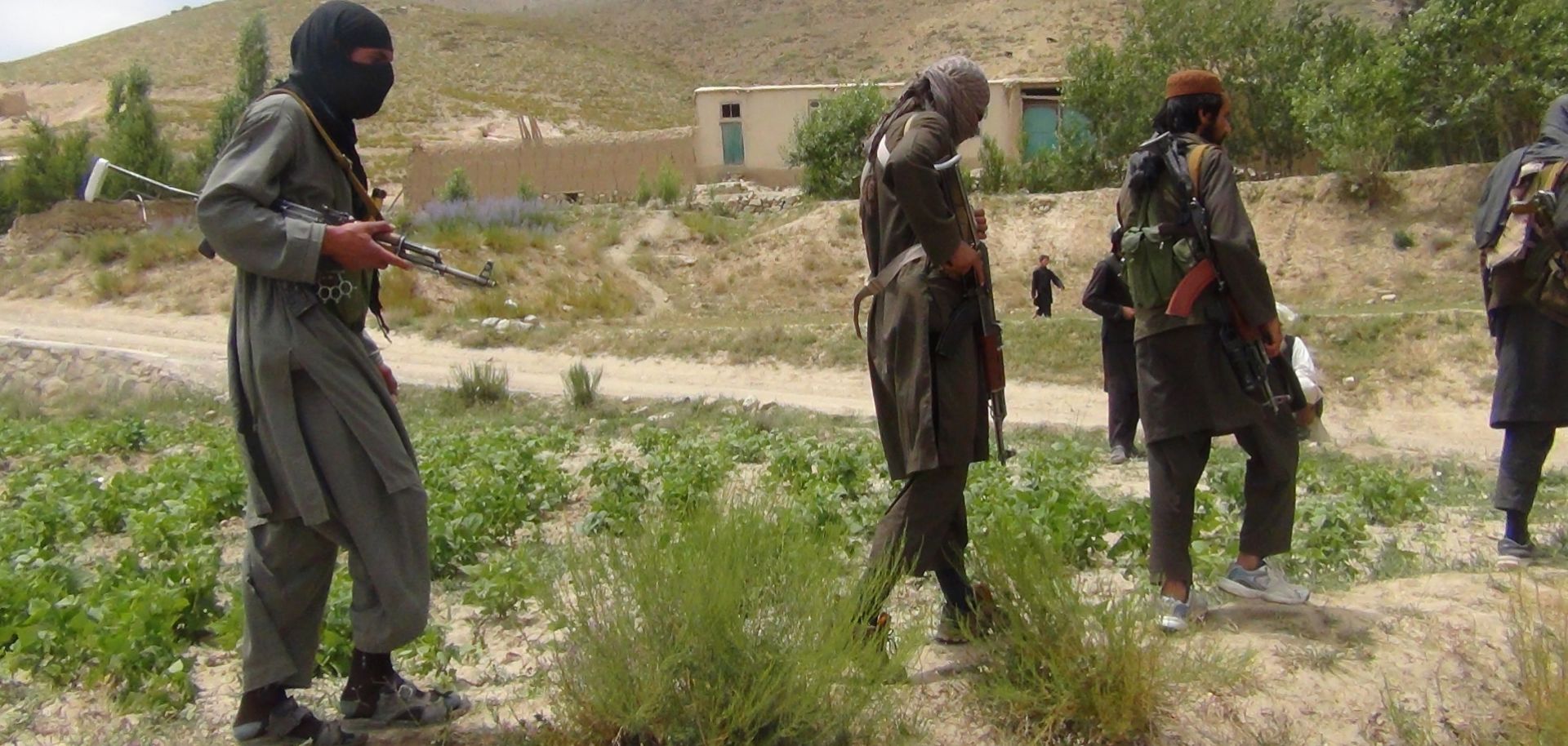ASSESSMENTS
For Afghanistan, a Divided Taliban Poses an Obstacle to Peace
May 23, 2018 | 08:00 GMT

Fighters with Afghanistan's Taliban militia walk with their weapons in Ahmad Aba district on the outskirts of Gardez, the capital of Paktia province, on July 18, 2017. Civilian deaths in Afghanistan hit a new high in the first half of 2017 with 1,662 killed and more than 3,500 injured, the United Nations said July 17. The majority of the victims were killed by anti-government forces -- including the Taliban and in attacks claimed by the Islamic State, the report said.
(FARIDULLAH AHMADZAI/AFP/Getty Images)
Highlights
- The prominence of the Haqqani network within the Taliban's leadership will continue to undermine peace initiatives due to the faction's insistence on a military solution to the conflict.
- The fragmented nature of the Taliban will complicate negotiations because of the need to bring various and competing factions to the table.
- The clashing objectives involving the Haqqani network will widen the antagonism between the United States and Pakistan.
Subscribe Now
SubscribeAlready have an account?
